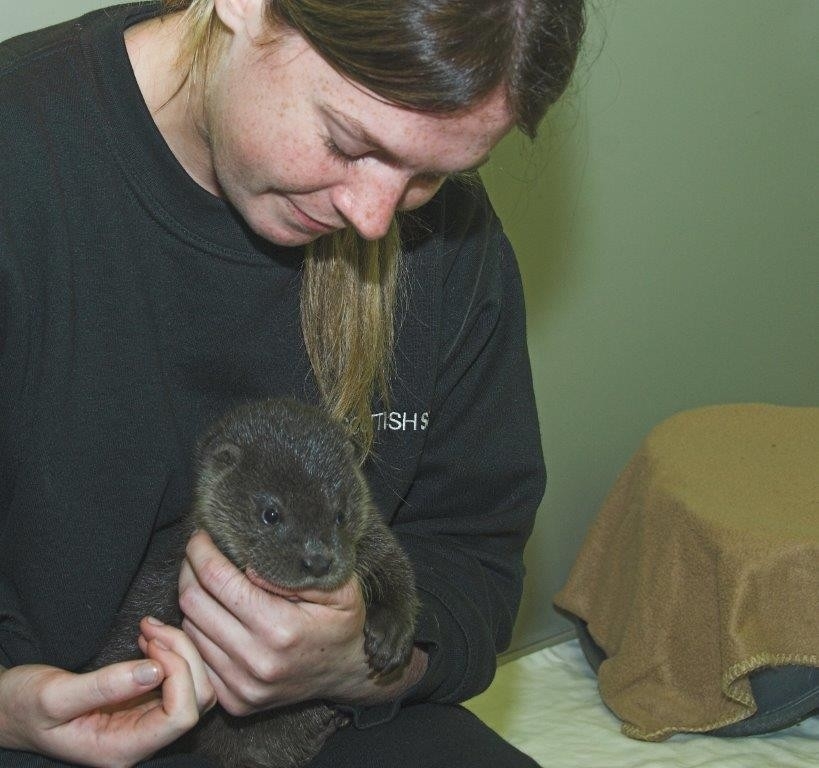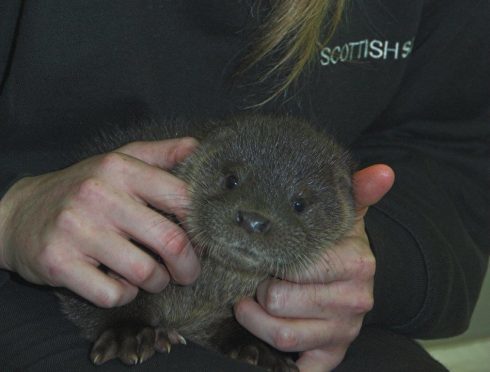An adorable otter cub who found himself orphaned in Grantown-on-Spey has been rescued by the Scottish SPCA.
The distressed animal was discovered alone and crying out for his mother by a member of the public who handed him into a local veterinary practice.
The 10-week-old male is now being rehabilitated at the charity’s wildlife centre in Fishcross, Clackmannanshire, where he has been named Dylan.

Wildlife centre manager Colin Seddon said: “Otters usually remain with their parents until they’re around a year old.
“Dylan is far too young to be on his own and wouldn’t have been able to survive in the wild if he hadn’t been found.
“He is being cared for along with another three otter cubs that arrived in our care a short while ago after they were found huddled together on a beach.
“At the moment Dylan needs playtime with our staff members as he is on his own but once he is bigger he will be introduced to the others who are of a similar size and age. This is ideal for otters as they need interaction with their own kind.
“Dylan will be released in around a years’ time when he is mature enough to fend for himself in the wild.”
Otters have long, slim bodies and short limbs. They are playful animals, and their most striking features are the powerful webbed feet used to swim.
Otters have abilities similar to seals for holding breath underwater. Most have sharp claws on their feet and all except the sea otter have long, muscular tails.
There are 13 different species of otter. They have very soft, insulated underfur, which is protected by an outer layer of long guard hairs. This traps a layer of air which keeps them dry, warm, and buoyant under water.
Fish is the staple diet for most otters, which is often supplemented by frogs, crayfish and crabs.
Some otters are expert at opening shellfish, and others will feed on available small mammals or birds.
Anyone who discovers an injured or distressed wild animal should call the Scottish SPCA animal helpline on 03000 999 999.
